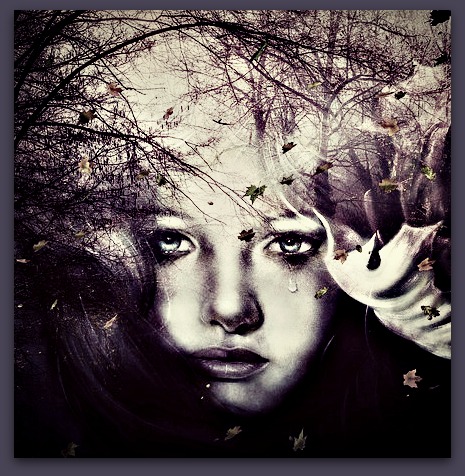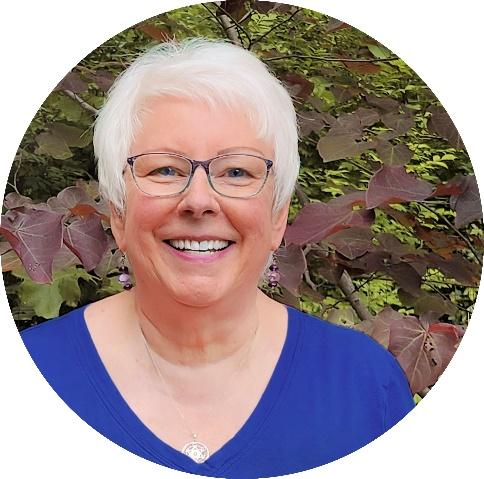For the past few days, she’s been aware of a vague sadness haunting her. She isn’t sure what the grief is about; it’s simply with her. When she finally stops to consider it, she realizes this background tone of sorrow has permeated her feelings for as long as she can remember. “Hmmm,” she thinks, “it’s high time to find out what this is all about.”
Here’s the audio of this post, if you prefer to listen:
She activates her sacred space and confidently accesses her Akashic Records, sitting for a moment in their welcoming and supportive energy, gathering strength for her inner work.
When ready, she asks: “What’s this feeling of sadness, this grieving for something lost that I’ve felt for so many years? Where does it come from? Why does it continue to reoccur? What can you guide me through today to heal and then release this painful feeling?”
To her surprise, her inner vision fills once again with the door to the Garden of Secrets, and this time the door is already open. “Well, of course my Records would bring me here,” she thinks. “This sorrow is a mystery to me.”
 A bit nervously, she steps into the walled garden, noticing immediately that it looks different from the last time. Now all she sees is a small, rather overgrown courtyard. Stopped in confusion, not knowing what to do next, she hears someone crying. Quietly, she walks further into the courtyard, not wanting to startle whoever is weeping so hopelessly. Glancing around, she notices many of the bushes and flowers are withered. Weeds abound. The whole place feels abandoned.
A bit nervously, she steps into the walled garden, noticing immediately that it looks different from the last time. Now all she sees is a small, rather overgrown courtyard. Stopped in confusion, not knowing what to do next, she hears someone crying. Quietly, she walks further into the courtyard, not wanting to startle whoever is weeping so hopelessly. Glancing around, she notices many of the bushes and flowers are withered. Weeds abound. The whole place feels abandoned.
“Who could be here in this desolate place?” she silently wonders. Quietly exploring the courtyard, she notices a bench almost hidden behind an untidy trellis. Sitting hunched on the bench is a young girl who looks about seven or eight years old – too young to be here alone and too old to be picked up and cuddled. Inspired by her Records, she quickly understands: “This little girl is the one I’ve come to find. She’s the part of me who’s been so sad for so long.”
Aware of the child’s utter isolation and despair, she silently asks her Records for assistance. She feels the warmth of Divine unconditional love filling her and gradually overflowing towards the girl. “Hello, Young One,” she says gently. “I’ve been hearing you crying.”
Slowly, the tearful girl lifts her head and looks around with bleary eyes. When she sees Lady, she just looks at her for a few moments, like she expects her to disappear. “Who are you?” she finally asks in confusion. “Why are you here? No one ever comes here except me.”
“I think I’m you when you’ve grown up,” Lady replies. “I’m sorry it’s taken me so long to come find you. May I sit with you on your bench?”
“It’s not my bench. Do whatever you like,” the girl says, withdrawing to the furthest end of the seat.
As Lady sits down, carefully leaving space between them, she notices the girl is thin and her face is smeared with tears and grime. Her grey dress is frayed, while her bare feet are covered in scratches. “Well,” Lady sighs with remorse, “No one, especially me, has been taking good care of my Inner Child for far too long.” Lady wonders what to do now she’s found this forgotten part of herself.
When Lady would feel rejected as a child because no one in her family would pay attention to her or answer her questions, she remembers hiding behind the trellis that shaded the back of the house. It was the one place she felt safe enough to let her sensitive emotions flow. With this memory comes a happy recollection of how the family cat would often jump into her lap and loudly purr, ignoring the hot tears falling on his head as Lady stroked his soft fur until she felt better.
“However, there’s no friendly pet here to offer unconditional love and save the day! It’s up to me to comfort my Inner Child. No one else can now,” Lady realizes. She bravely takes a deep breath, silently asks for the guidance of her Records, then gently asks, “What’s wrong, honey? Why are you here all alone?”
 Young One just shakes her head and looks away, miserable in grief, tears sliding silently down her flushed cheeks.
Young One just shakes her head and looks away, miserable in grief, tears sliding silently down her flushed cheeks.
Lady tries again: “Please tell me why you’re so sad, sweetie. I know you’ve been grieving here on your own far too long. I’m here now and I promise that I’ll listen to all you’d like to share, and help you however I can.”
Slowly, with many pauses, while staring into the courtyard, Young One finally replies: “I come here so I don’t bother anyone else when I’m crying. I cry a lot. Mommy and Daddy don’t like it when I cry. It makes them feel bad, and they get angry with me. They say I cry too much, that I have to toughen up. My sister calls me a crybaby! I can’t help it if I feel things more than they do. Sometimes I don’t even know why I’m crying. I just feel so sad, like something very special has been lost and will never be found.”
“I’m sorry your family doesn’t appreciate your sensitivity and that you feel so sad,” Lady softly responds. “Feeling bereft – that’s a grown up word for feeling really sad about something you’ve lost – is hard. Being able to feel so deeply is a special gift not everyone has. That’s why people don’t understand your strong feelings. Did you know that?”
“No,” Young One says. “Nobody ever talks to me about my feelings. They just order me to stop crying or tell me to go to my room. Sometimes I try to swallow the feelings and my tears, but that makes my throat hurt even worse. It’s better to go away. I’d rather be bereft,” she says, trying out the new word.
Moving a bit closer, Lady asks in a soft voice: “Could it be that some of those achy feelings that are so painful to swallow aren’t even yours? Have you ever thought about that? That’s one of the gifts of highly sensitive people. They feel the emotions – good and bad – of other people. This is called empathy, another fancy word, and it can be a very useful gift once you understand how to use it.”
“Huh,” Young One said, puffing out her cheeks as her eyes focus inward. After a long pause, she slowly pronounces, “Empathy,” then continues with, “I don’t know. They feel like my feelings. How could they be someone else’s?” After another thoughtful pause, Young One turns to Lady and asks: “Is there a way to stop accepting yucky feelings from others?”
“Yes,” Lady replies with a smile. ”First, you learn how to distinguish when feelings are your own and when they’re not – both the good ones and the not so good ones. There’s another big word for that – discernment. Would you like to practice with me?”
“Okay – I’d like to be more discerning about my feelings,” says Young One with a nervous gulp.
First they practice sending, feeling, and naming different emotions – taking turns back and forth. Neither is correct every time, yet both often are. They get better and better as they practice together. Eventually, Young One notices she has to open her heart in a particular way to be able to identify the specific emotion Lady sends. It feels a bit like she’s putting up an antenna. Instead of being overwhelmed by many emotions (both her own and Lady’s), she can now focus and receive one at a time, name it, then send it back. Once Young One can easily do that, she discovers that she can choose when she wants to receive emotions from Lady! It’s sort of like opening a storybook or choosing not to read it.
“This is fun!” Young One says, bouncing up and down on the bench. “I feel so much better! Thank you!” Lady suddenly notices that Young One now looks healthy and loved. Her dress is clean, a lovely blue with hand embroidered daisies on the edges. With shiny shoes and a ribbon in her hair, the child’s tears are long forgotten.
Lady says: “I’m so glad you feel better, dearest one! It took me a long time to learn how to discern between my own feelings and those of others. You’re a quick learner! Would you like a hug now?”
Young One happily hugs Lady, and then they sit closely together holding hands, totally comfortable now with themselves and each other.

After a few moments, Lady quietly states: “One last thing. It’s important to honor your sensitivity. Seek solitude frequently to recharge and heal. When you remember that, your gift can be strong enough to help others.”
“So instead of feeling bad and unwanted because I feel too much, I can find a quiet spot and enjoy being alone.” Radiant now, Young One says to Lady, “Thank you for coming to find me!”
Lady softly responds, “I’ll always be with you. There is much for us to discover together. I love you, Young One! I promise you’ll never be left alone again. You are part of me now.”
Leaving the Garden of Secrets, Lady and Young One effortlessly merge as Lady returns to her present. She feels happier, more complete than she can ever remember. She knows her Inner Child nestles in her heart, and she can love this part of herself in all the ways her parents could not. Content, she thanks her Records for the healing she has experienced and gratefully closes the connection.
The End
While the Records acknowledge that exploring the Records is not exactly like this allegorical story, they are offering an invitation to explore your own story, symbols, and archetypes that hold you back from merging with your Inner Child. If you’d like Akashic assistance with Sandra as your facilitator, click here to set up a private session, or here to learn to access your own Records.
If you’d like to post a comment, just scroll down. I’d love to hear your thoughts on this Akashic Inspiration!
Till next time,
Radiance and Love –
![]()





Such a beautiful story of exploration and healing in the Records. So often it is as magical, easy and powerful, just as you write so lovingly. Thank you for this sweet tale of deep and graceful healing and expansion.
Thank you Nancy for reading my latest post and for the confirmation that change can be as sweet and easy as this story from the Records shows us. Each of these stories has been a journey for me with the Records, and I love being able to share what I discover with you and the other readers!
Dear Sandira, what a marvelous way to be reminded to care for my Little One. I have neglected her and didn’t realize it until reading these words. The same goes for time spent in the busy-ness of my days without the discipline of checking in with my Records. Also my joy. The work of walking through this earth walk is trusting the nudges from Spirit and this is one for me. Thank you Sandira for my nudge, Lauren
Thank you Lauren for sharing how my latest story from the Records has touched you in so many sweet ways! I know your Little One will be delighted to be part of your everyday life. These parts of us are so precious.